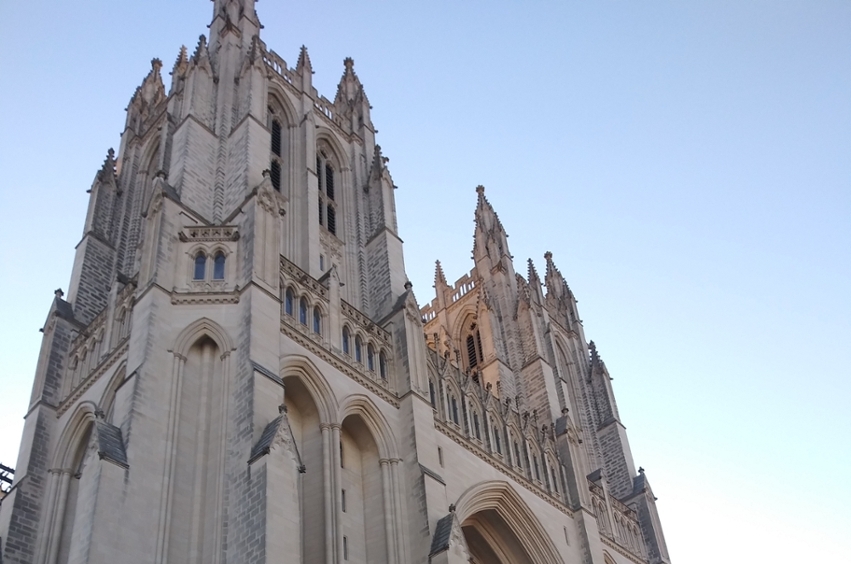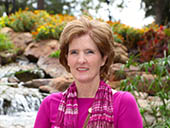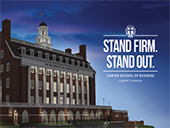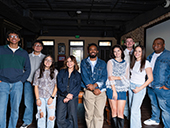Pandemics and the Church: What does History Teach us?
This article is over six months old and may reference former titles for DBU faculty or staff, discontinued programs, or other details that have since changed. If you have any questions, please contact us at news@dbu.edu, or (214) 333-5172.

Plagues, disease, famines, wars, and natural disasters. These are hard realities of living in a fallen world we read about everywhere in the pages of Scripture, but a widespread pandemic is not unknown throughout the history of Christianity.
The outbreak of the Great Plague in 1347, the London Plague in 1665, the Spanish Flu in 1918, the Ebola Crisis in West Africa in 2014. Christians of past and more recent generations have endured these and many other forms of disruption and loss, including the Great Depression of 1929, two World Wars, and the Syrian Refugee Crisis in 2011 to name a few.
In these times, economies and commerce were disrupted. Businesses closed. Transportation declined. Food was scarce. Church buildings were emptied.
This is not meant to diminish the realities of our current troubles, but to place them in some historical perspective. Times like this are not unknown to the Church. In fact, perhaps the times when Christians are sheltered from trouble is the exception rather than the rule. Even now, many Christians worldwide suffer under great persecution. Christ never promised us freedom from troubles in this present world. In fact, He warned us of the opposite while promising us peace and hope in Himself (John 16:33).
Times like this remind us that we are still fragile mortals living in a fallen world under the ancient curse upon creation and that the Kingdom of God in its fullness is still the future. When the city of Rome burned from foreign invasion in 410 AD, Augustine penned the City of God from his pastorate in North Africa to assure that, while earthly hopes are being shaken and shattered, the eternal promises of God's Kingdom for the future remain certain.
Not only this, but Christians of the past and present inspire us with demonstrations of resilient faith and compassion in the midst of crisis.
In ancient Roman times, when plagues struck, it was often Christians who demonstrated the most humanitarian care toward the sick and dying that even pagans and oppressive Emperors could not help but take notice.
In the era of the Protestant Reformation, when an outbreak of plague struck Wittenberg, Martin Luther responded that prayers of faith should be offered up for God's mercy along with responsible practices of sanitation, medication, self-quarantine, and social distancing to help stop the spread in love for others. Yet Luther and his wife Katie also did not refuse their own home to those in need of care. As Luther's great hymn "A Mighty Fortress," based on Psalm 46, triumphantly stated in the face of earthly trials, "God's truth abideth still, His kingdom is forever."
In 1918, the Spanish flu killed millions worldwide. Church buildings in affected areas in the U.S. were closed while believers continued worshipping from house to house. Some churches opened their doors to serve as health clinics as hospitals were bursting at the seams with patients. As was often the case, many sacrificed their lives to care for the sick.
In the outbreak of the Ebola Crisis that reached Liberia in 2014, the missionary compound of ELWA became ground zero for medical treatment, and many Liberian nationals and Western missionary ex-pats like Nancy Writebol courageously served others at great risk and cost to themselves.
Times like this are opportunities for the body of Jesus Christ on earth to show what she truly believes by exhibiting an unshakable faith and hope in God while continuing to do good in love toward one another. In dark times, especially, be on the lookout and watch for extraordinary rays of light, faith, hope, and love.
We might not all be called to the frontlines of caring for the sick, but there are other ways we can show loving concern and compassion toward others during this time of crisis, and certainly, our response through this disruption will reflect where we place our hopes and the strength of our faith before a watching world. The Church will come through this as it has in times past, though not without scars, what will be the legacy she leaves behind of her witness?
With the future ahead uncertain, let's pray as the Lord taught us, asking the Lord for our "daily bread," for reconciliation, and for deliverance from evil. Whatever we are called to endure, let us declare with the prophet Habakkuk in light of the dire and perplexing situation that faced his own nation, "yet I will rejoice in the Lord, I will be joyful in God my Savior. The Sovereign Lord is my strength; He makes my feet like the feet of a deer, He enables me to tread on the heights" (3:19).
Dr. Michael Whiting is an Assistant Professor of Christian History and Leadership in the Cook School of Leadership at Dallas Baptist University. He also served as the Director of Written Content in University Communications.








